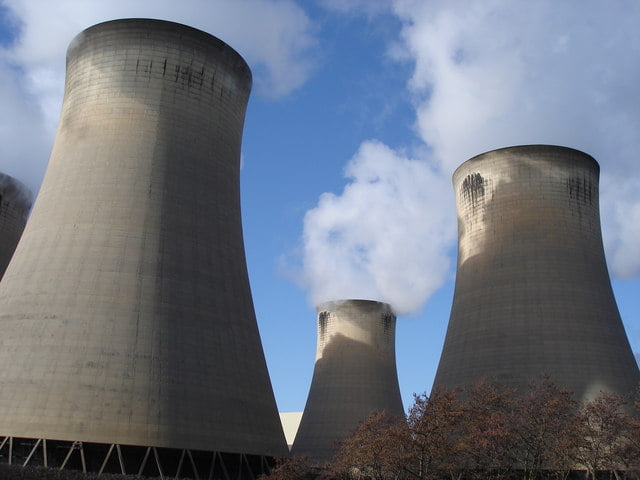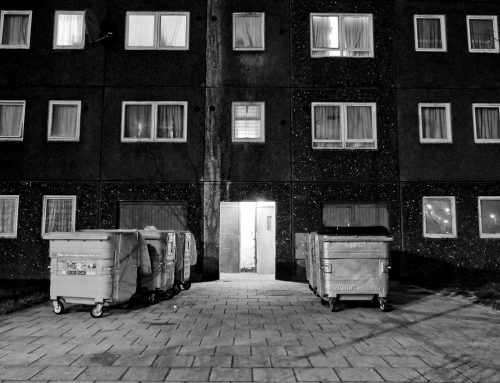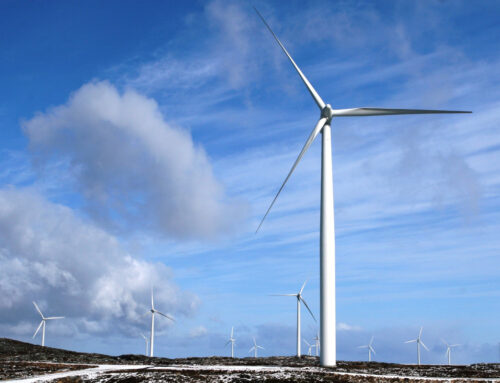by Peter Jones
5 minute read
We hear a lot these days about the opportunities presented by a green economy. If we get the right policies and industries in place we can kick our GDP into a green overdrive, delivering more jobs, more wealth and higher living standards – while still saving the planet. To quote John Cridland, Director General of the Confederation of British Industry (CBI) “The so-called “choice” between going green or going for growth is a false one”. Heart-warming stuff – but is it true?
Nick Clegg was trumpeting this view back in April, along with a claim that the coalition was working towards green growth. But when I looked more closely I found more hogwash and greenwash than substantive policy. His talk of marrying environmental and economic aims seemed really to be about reassuring Lib Dems that there were benefits to remaining within the increasingly troubled marriage of the coalition.
The CBI, though, agrees with Nick, and when John Cridland gave a speech last month echoes of Clegg could clearly be heard. He also called for the Government to do more to support the growing green sector, as a way to promote green growth. Criticism of “green tape” may have been predictable – has anyone at the CBI ever called for more regulation? – and some of the impressive sounding numbers he quoted don’t stand up well to scrutiny. We may have a green sector worth £122bn, but our GDP is £2.4 trillion, meaning that 95% of our economy remains conventional! But what about the examples of false choices the CBI highlights?
Energy mix up
Take for instance the brief discussion of energy policy in a recent article by the CBI’s head of climate change, Matthew Brown: “Whether to power the country with renewables or gas (or nuclear, or indeed coal with carbon capture and storage)” is a false choice, he claims, because “to decarbonise the grid, keep the lights on, and minimise costs for consumers, we are probably going to want all of them.”
He’s right, of course, that no real-world government will put all of its eggs in one basket. But this is not due so much to a false choice as a political and economic necessity – and surely the interesting question is how much of each we pick. One would imagine that a government heavily committed to the green agenda would emphasise low carbon options, and accept somewhat higher energy prices; while one that put growth first might pick cheaper, dirtier solutions that keep energy costs for industry down.
The CBI’s solution to this “false choice” is to state that it is “not the Government’s job” to determine the mix in detail; but instead to define “outcomes and create a level playing field for sources to compete.” This framework is exactly what the Government’s Energy Market Reform puts in place, but the key question remains: what outcomes should we specify? This choice will determine the balance between price, reliability and emissions.

The mix between fossil fuels and renewables remains a real choice. Photo by Ian Cunliffe, via Wikimedia Commons
The CBI is clearly angling for a low price outcome, as Cridland indicated when he talked of another ‘false’ choice: “There is no need to create losers in the low-carbon transition, but at the moment we are endangering our energy-intensive businesses.” Instead of pushing for measures to help reduce the energy intensity of business in the UK, they warn of the danger of industry moving overseas, and see the solution in continued reliance on cheaper – and therefore dirtier – energy. So we are in fact faced with a real choice, where the environment and business come into direct opposition.
Real choices
I was surprised to see Friends of the Earth enthusiastically welcoming the CBI’s green growth pitch, although their call for a “fossil-fuel free electricity system by 2030 and a huge increase in clean British energy” might be a little at odds with what industry’s cheerleaders have in mind.
In so far as the solutions to our environmental issues – stemming from the limited capacity of the planet to supply our resource needs and deal with our waste – lie in technology, such as solar panels, wind turbines, electric cars or even CCS systems, it is true that this technology will need to be designed and built somewhere. There will be a GDP benefit to the UK if more of that happens here.
But just as the waste hierarchy places waste prevention above recycling, the best way that the 95% of our economic activity that isn’t green can benefit the environment is for it to be reduced. This would be bad for the economy: if businesses use less energy, cut down on waste, and buy fewer raw materials, GDP will fall. If fewer of us drive cars or buy the latest gadget, our foregone consumption means that business suffers according to our traditional measures. Nevertheless, we have to start making these inroads into the resource intensiveness of our western lifestyles, or no amount of green growth will make a difference to our environmental impact.
I think it is dangerous for politicians, business leaders and the third sector to exaggerate the potential of green growth. While examples can be found of synergies between the demands of environment and economy, on closer inspection these tend to be the exception. Instead we should be looking for a different understanding of our economy. We are as yet ill equipped to understand how society can thrive in the zero or negative growth environment that may be environmentally necessary. Although there is an expanding literature exploring the subject it still seems a long way from the mainstream, where GDP growth remains the holy grail.
By exploring alternative economic measures and describing what might be attractive about a zero growth world, we can start to articulate the reasons why people might want to choose environmental stability over economic growth. But pretending that we don’t have real choices to make will only delay addressing our very real problems.






Philip, Thomas, Jim – thanks for your comments, I’m really glad you found the article interesting. It felt as though there was a need to highlight that talking about false choices seemed to mask the real issues. But it is really difficult, as Jim says, to put across the point that doing the “win-win” things only gets you so far without it sounding like you’re saying “we’re all doomed”.
The challenge that is not yet being taken on properly is to articulate what would be attractive about a world where we weren’t hooked on growth, where we consumed less and experienced more. There are exciting things to say about it, which perhaps people could be drawn towards.
Announcing the end of the world is only ever palatable if you’ve got a new and better one to offer – maybe I need to get my sandwich boards out too.
I think you’ve answered it yourself. True green economy is less consumption, more energy efficiency. Yet the problem is we have become accustomed to the western lifestyle. Developing countries such as China see how we are living and would like a piece of it too.
As a species, we’re doomed unless population is capped or there’s another WW or some catastrophe. Maybe I should get the sandwich board out with “the end of the world is nigh” 🙂
Peter,
Interesting stuff – thanks for that. I’ve never quite been able to work out how this green growth agenda is meant to hang together in practice. We are told that the future lies in the creation of green jobs. But what will we do with the rewards of these green jobs? My best guess – correct me if I’m wrong – is that most people will just end up consuming more. We are sold the idea that we can have green growth without having to make any real choices: if we are serious about things we are going to have to make some very real – and undoubtedly hard – choices about our individual and collective lifestyles. As you say Peter, these choices may be green, but they are unlikely to deliver the growth that politicians are so desperate for. Economic growth is clearly the priority and as long as it remains so all talk of changing our current consumer habits will be conveniently brushed aside.
Peter,
A good article. Sooner or later we need to grasp the nettle – I’m sure many politicians know all this stuff but are not brave enough to acknowledge these issues.
PC